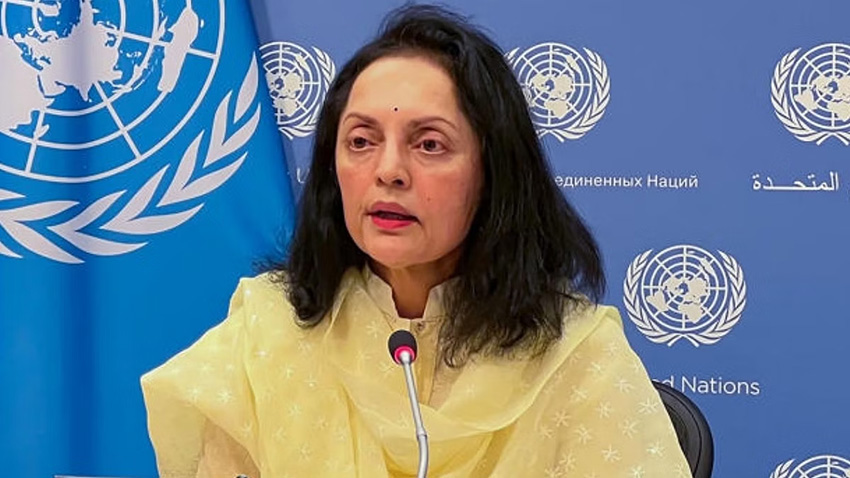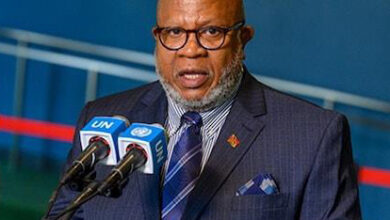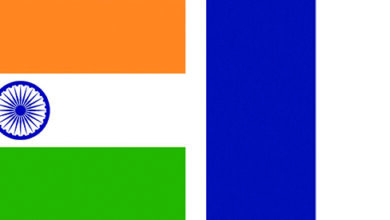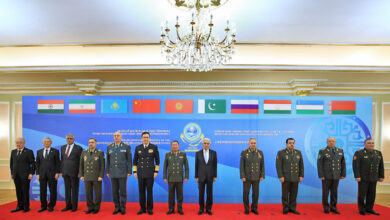India reiterates call for Security Council Reforms, presents detailed model on behalf of G4 Nations
By R. Anil Kumar
- India reiterates call for security council reforms
- India presents detailed model on behalf of G4 nations for UNSC reform that displays flexibility on veto
- India stressed that the Council’s inability to address critical conflicts and maintain international peace and security underscores the urgent need for reform
- UN apparatus, especially Security Council, is crumbling under weight of 21st century geopolitical realities: India
- “We need an all-encompassing, comprehensive reform process” which includes expansion in permanent as well as non-permanent categories of membership of the Security Council, the question of the veto, the relationship between the General Assembly and the Security Council and an improvement in the working methods: Ruchira Kamboj
UNITED NATIONS, March 10. India’s Permanent Representative to the UN Ambassador Ruchira Kamboj presented the ‘G4 model’ on behalf of India Brazil, Germany and Japan for debate, dialogue and finally negotiations.

India has presented a detailed model on behalf of the G4 nations for Security Council reform that includes new permanent members elected democratically by the General Assembly and displays flexibility on the veto issue.
Participating in the Inter-governmental Negotiations on Security Council reform (IGN), India’s Permanent Representative to the UN Ambassador Ruchira Kamboj said the UN’s 80th anniversary next year serves as a milestone to achieve concrete progress on the long-pending subject.
Ms. Kamboj presented the ‘G4 model’ on behalf of India Brazil, Germany and Japan for debate, dialogue and finally negotiations. The proposals elicited strong support from wider UN members.
“The realities of 1945, when the Council was established, have long been superseded by the geo-political realities of the modern era and a new century; with the need for change being felt across the board,” Ms. Kamboj said as she shared the exhaustive G4 model with UN Member States in the General Assembly.
India calls for Security Council Reforms
The UN apparatus, especially the Security Council, is crumbling under the weight of 21st-century geopolitical realities, India has said, underlining that the General Assembly should take the lead in restoring the centrality of the United Nations to resolve transnational issues through multilateralism.
Catering to these new realities, the G4 model proposes that the Security Council’s membership increase from the current 15 to 25-26, by adding six permanent and four or five non-permanent members.
Among the six new permanent members, two each are proposed to be from African states and Asia Pacific states, one from Latin American and Caribbean states; and one from Western European and Other states.
The G4 model notes that the current composition of the Security Council, with its “glaring under-representation and un-representation” of key regions in both categories of membership, is “detrimental” to its legitimacy and effectiveness.
It stressed that the Council’s inability to address critical conflicts and maintain international peace and security underscores the urgent need for reform.
“Any reform that does not address the lack of representation, particularly in the permanent category, would only exacerbate the current imbalances in the Council’s composition and render it ill-equipped to address today’s international challenges,” she said.
Ms. Kamboj highlighted that it is important to note that the G4 model “does not specify” which member states will occupy the new permanent seats. “This decision will be made by the General Assembly in a democratic and inclusive election.”
She told the UN membership that the world has undergone a sea change since 1945 and the new realities need to be reflected in the permanent membership. “Any proposal that does not address the issue of representation of the Global South, including Africa, Asia and Latin America, in the permanent category does a grave injustice to the aspirations of developing countries for equality.”
The Security Council crumbling under the weight of 21st century geopolitical realities, consequently has turned some of the tide towards the General Assembly, giving us more facetime and traction, where the voice of the Global South is a formidable force unlike what is the case in the Security Council.
The G4 model offered flexibility on the veto, an issue that has been a contentious topic among member states as they try to move the needle forward on the reform process that has moved at a snail’s pace over the years.
“While the new permanent members would, as a principle, have the same responsibilities and obligations as current permanent members, they shall not exercise the veto until a decision on the matter has been taken during a review,” Ms. Kamboj said.
“Nonetheless, we should not allow the veto issue to have a “veto” over the process of Council reform itself. Our proposal is also a gesture of displaying flexibility on the issue for a constructive negotiation,” she said.
Currently, only the five permanent members — China, France, Russia, the UK and the US — hold veto powers and through its use have stalled action in the Council to address global challenges and conflicts such as in Ukraine and Gaza.





